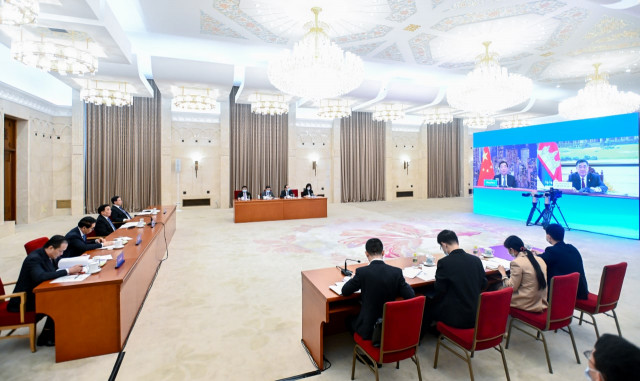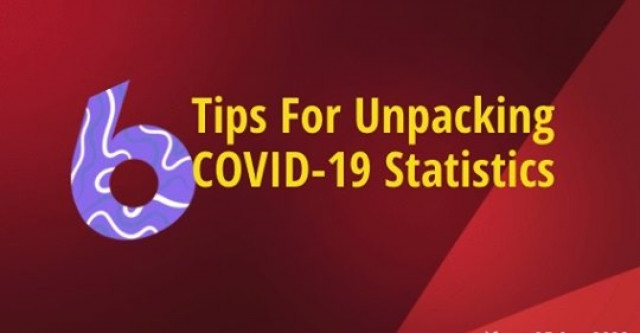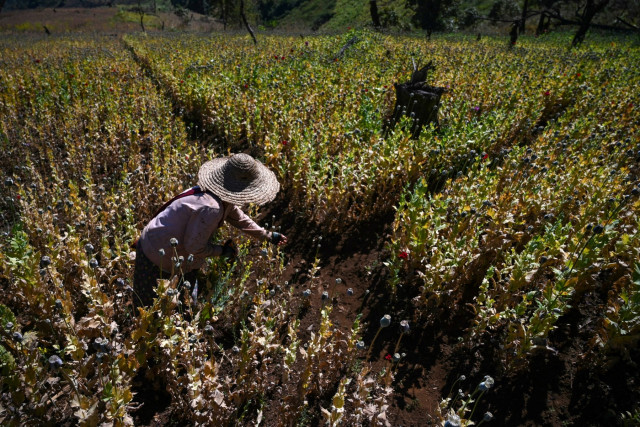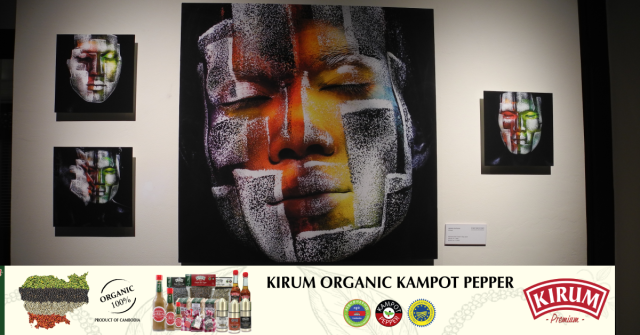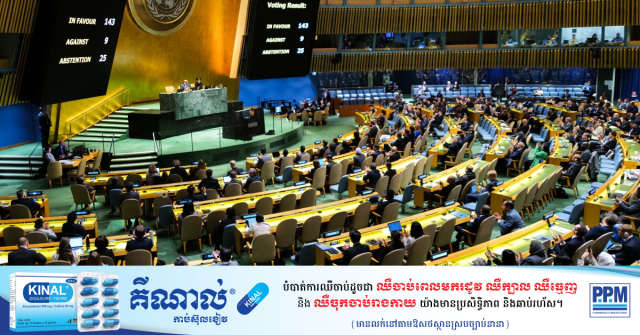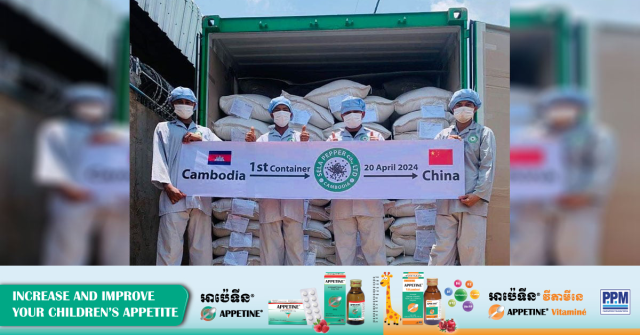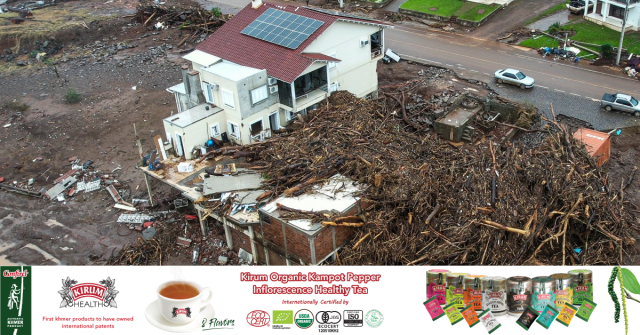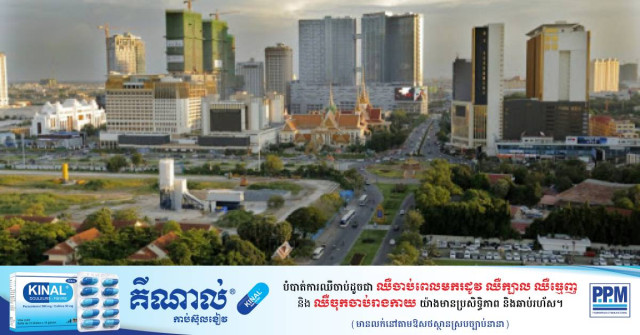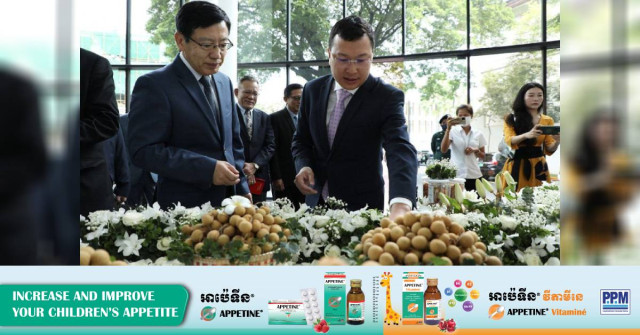Female Journalists Demand Gender Fairness and Security
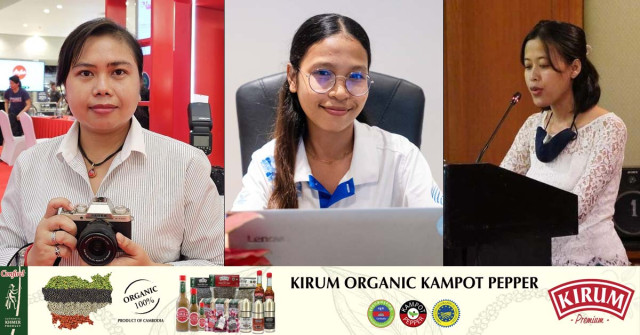
- By Meng Seavmey
- May 3, 2024 8:29 PM
PHNOM PENH – Women are needed in journalism to explore female issues but they face constant harassment and abuse in the profession, they say.
“Women’s presence is important because they can capture and provide in-depth information about women’s roles and issues, some of which cannot be reported by male journalists,” said Chhorn Raksmey, a journalist of online news platform Kiripost.
They need only the chances and protection to show their potential, she said.
Raksmey started exploring the field of journalism in 2021. Led by her passion for photography and writing, she took on the career despite not having a related degree.
After journalism training, she learned more by working as a reporter in English, hoping to use her career to protect women and give them a voice nationally and internationally.
“This doesn’t mean that male journalists cannot report on women’s issues or women’s rights well, but there are some parts of the issues that require fellow women to get a deeper understanding or information,” she said.
Raksmey said she had experienced physical and verbal harassment while working, which scared her and made her feel uncomfortable whenever she joined an event with many male journalists.
However, she managed to improve her professional skills and become braver to become a more protective version of herself for work.
“As a woman working for an online news platform, I would like to encourage fellow women to raise the issues and their voices.”
She wants to see more female journalists and urged stakeholders in journalism to give them more value and protection.
“I hope the media will provide quality and trustworthy news to their audience. Freedom of expression should be more open, with a law created to protect journalists more actively than now,” she said.
Journalists must be daring to speak about their challenges and work professionally with ethics, while relevant parties should cooperate with journalists.
Srey Kumneth, a multi-reporter at Koh Santepheap Daily News with eight years of experience in journalism, called for more women in journalism because the proportion is low.
Her coverage on women includes social issues, rights, entrepreneurships, businesses and talents.
She urged authorities to pay more attention to women, offer them more protection and encourage their independence.
Kumneth, who also features news through her photography, has experienced challenges including mistakes, threats, curses and judgment. Regardless, she has been recognized for her work.
She uses photos to give value and meaning to her stories, as she believes that photography and journalism complement each other.
“In today’s context, a good article should tag along with good quality photos, and the photos must align with the meaning of the article,” she said.
“The choice of photos must be based on ethics, meaning that the photos should not offend or expose victims, including children and young women.”
Deadlines, lack of sources and threats make her think of quitting but she received support from her editors and was motivated to keep going.
“At the end, I turned my weaknesses into strengths, becoming humble and flexible within the environment to make sure I wouldn’t make any mistakes when speaking,” she said.
Based on her experience, Kumneth thinks that — although there has never been an in-depth discussion among her and her fellows — most male journalists are understanding of what the women do, while some still see themselves as superior.
“However, this aspect mainly depends on an individual’s personality and mindset.
“Some men are very understanding of women and show respect to us, while some don’t even care, as they think that they, in any job, are better than women,” she said.
Female journalists at work still face mocking or provocative statements from male journalists who considered these as jokes.
Kumneth said the situation of journalism is getting better to some extent than several years ago. Some journalists behaved ethically but some people and journalists do not understand the job well.
“Some people ask to read the articles before they are published. Or, they would suggest I should write the articles to some extent and should not go in-depth.
“However, if they only suggest we, journalists, should write our views, then they would be more trustworthy,” she said.
Kumneth wants solidarity from all female journalists to promote freedom of expression in journalism while learning more about their rights.
Freelance journalist Mech Choulay defines commitment to freedom of speech as the heart of journalism.
She said, “Journalists play a vital role in holding power to account, uncovering truths and fostering public debate and discourse.
“Through their reporting, they strive to uphold democratic values and ensure that diverse perspectives are represented in the media landscape.”
In four years in this field, she has often been under pressure from the difficulty contacting some important source, mainly governmental officials.
She also noted the risks to women’s safety and security both in the field and online. “Threats, harassment, and violence targeting female journalists remain prevalent, with impunity for perpetrators too often the norm,” she said.
Comprehensive measures were needed to improve legal protection, supportive networks and justice for the people who were affected by such acts.
Another security risk is finance. Choulay said there is still a gap in pay between female and male journalists doing the same job. This problem harmed their professional recognition.
Each newsroom should have “transparent pay structures, proactive efforts to address unconscious bias in hiring and promotion, and advocacy for policies that ensure equal pay for equal work.”
She also wants meaningful encouragement and support for female journalists. These require “inclusive work environments, investing in professional development and mentorship programs, and amplifying the voices and contributions of women in journalism.”
“As a female journalist, I think I have made meaningful contributions to promoting the freedom of expression by amplifying diverse voices, challenging power structures, advocating for press freedom, engaging in courageous reporting, and empowering others to join the fight for a more just and equitable media landscape.”
She is committed to keep making a difference by using her voice and platform to advocate and inspire for justice and equity.








